Search Results
Showing results 1 to 12 of 12
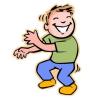
Rhythm Painting
Source Institutions
In this activity, early learners create paintings by making music and rhythm. Learners place paper in cans, add paint-soaked beans (or pebbles) and put the tops on.
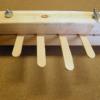
Thumb Piano
Source Institutions
In this activity, learners explore sound by constructing a simple piano out of wood and craft sticks.
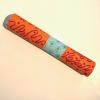
Let's Make Music
Source Institutions
In this activity, learners will create their own percussion instrument with recycled materials. Learners will explore design, fabrication, cause and effect and sound through this activity.
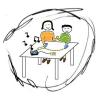
Making Circuits
Source Institutions
In this activity, learners explore electricity and conductivity to find that many things conduct electricity including copper, pencil lead, fruit, play-doh, and even people!
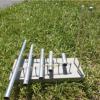
Metallophone
Source Institutions
In this activity, learners explore sound by constructing an instrument using some metal pipes, rubber bands, and a baseboard.
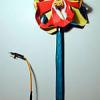
Wandering Wands
Source Institutions
In this activity, learners construct wands that play different notes depending on information from light sensors programmed via a PICO Cricket.
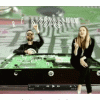
Sound Representation: Modems Unplugged
Source Institutions
In this activity, learners listen to songs and decode hidden messages based on the same principle as a modem. As a final challenge, learners decode the binary messages in a music video.

CD Spectrometer
Source Institutions
In this activity, learners use a compact disc to make a spectrometer, an instrument used to measure properties of light.
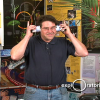
Make a Speaker: A Coil, a Magnet, and Thou
Source Institutions
Make your own simple speaker so you can listen to your favorite radio station. Just wind a coil, attach it to a piece of cardboard or Styrofoam, hold a magnet nearby, and listen.
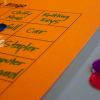
Sound Bingo
Source Institutions
This game is like regular bingo, except the clues are sounds.
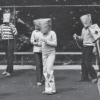
Sound Off!
Source Institutions
This activity includes several games about animal sounds. Using their sense of hearing and communicating with various kinds of noisemakers, learners role-play predator and prey.
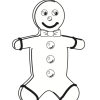
Eatem Up
Source Institutions
In this math activity, learners use gingerbread cookies to collect and organize simple data. First, learners read "The Gingerbread Boy" by Paul Galdone.
